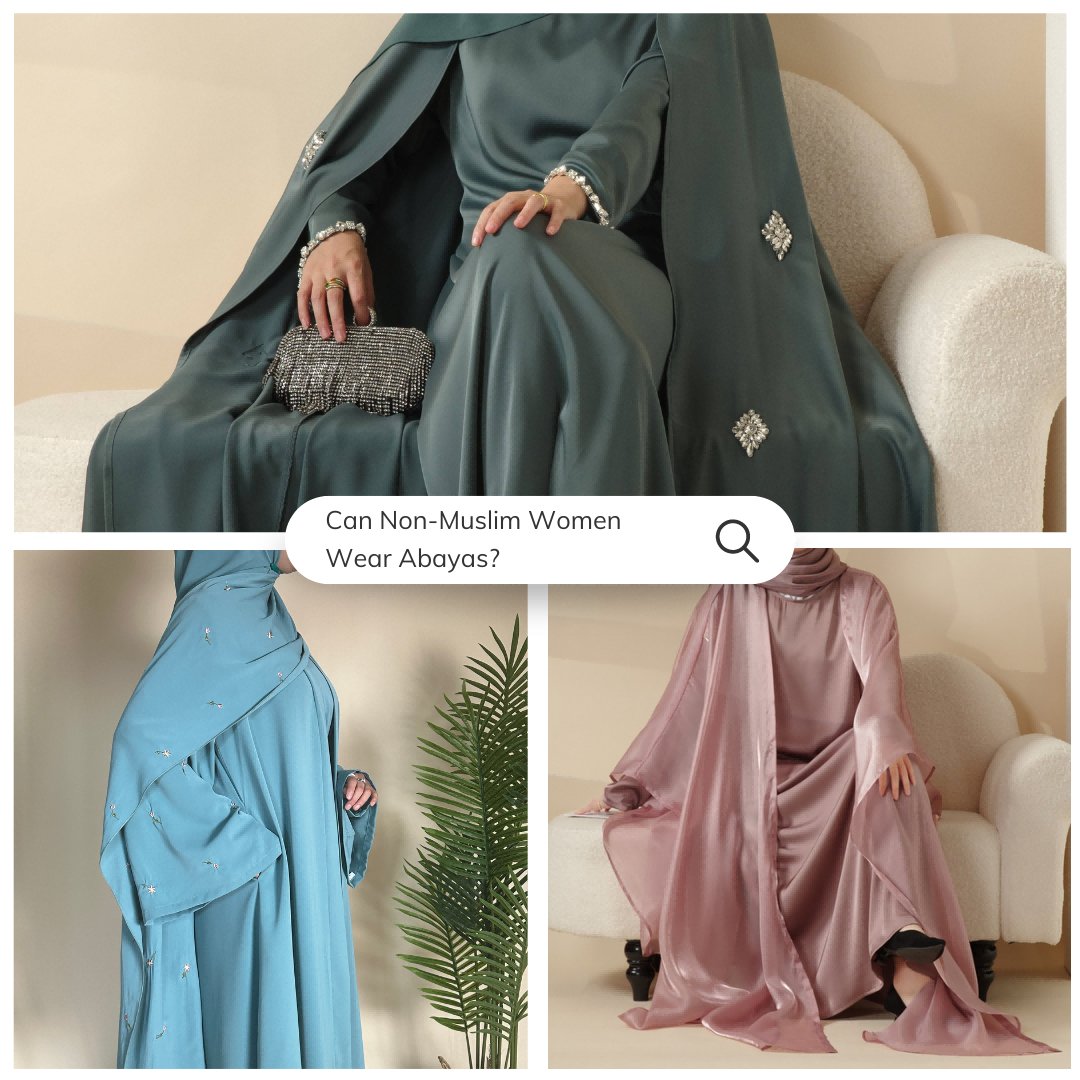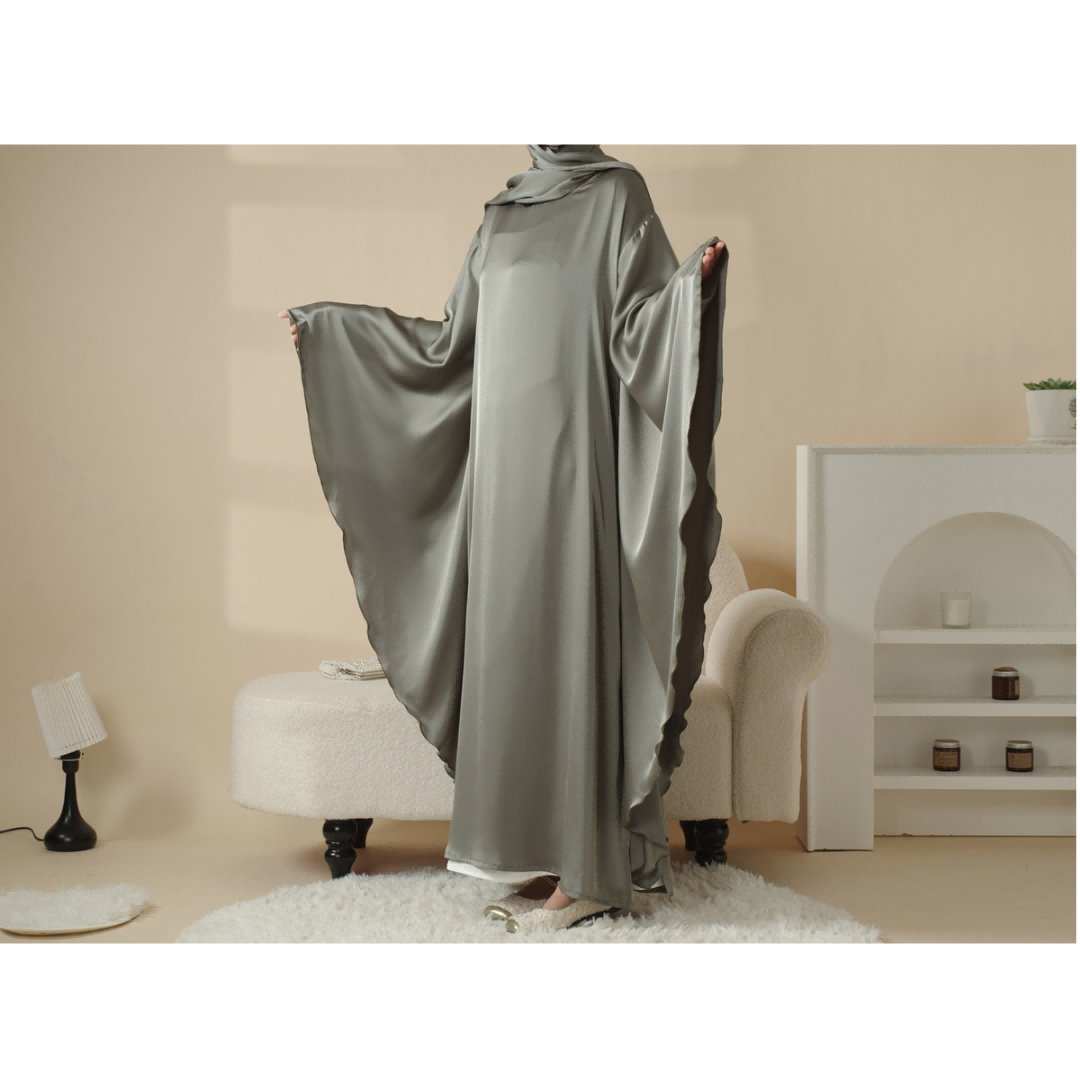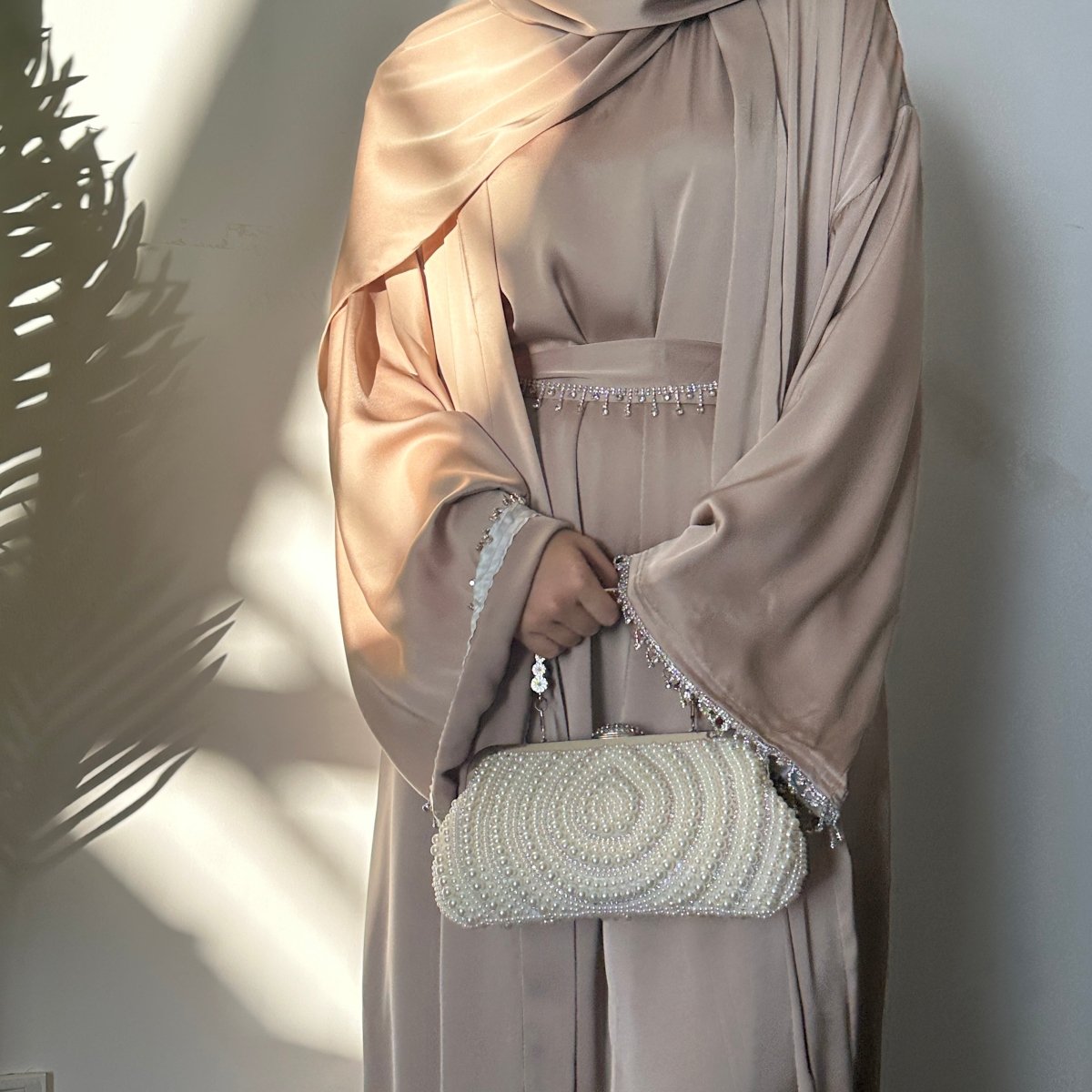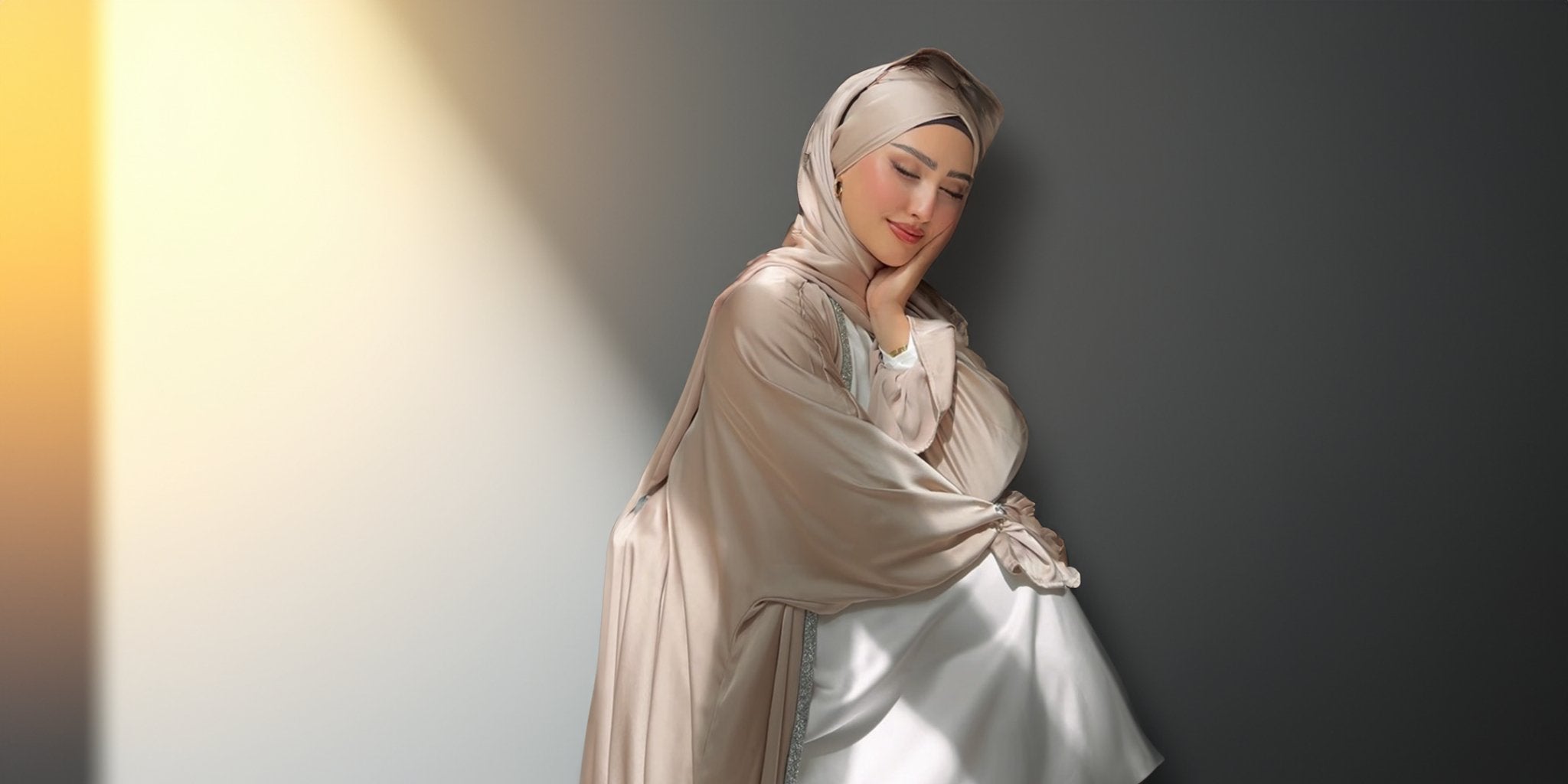The question of whether non-Muslim women can wear abayas is one that has sparked significant debate online. While opinions vary, many agree that the abaya can be worn by anyone, regardless of their religious beliefs. But the conversation goes deeper, touching on issues of cultural respect, religious symbolism, and personal freedom.

Haute Couture Heavy Craftion Rhinestone Cape Abaya
A Cultural Perspective
The abaya is a traditional garment worn by Muslim women, particularly in regions like the Middle East. It’s not just a piece of clothing but a symbol of modesty and cultural identity. For many Muslims, the abaya is a visible representation of their faith, embodying the principles of modesty and privacy. Given this, it’s understandable that some might feel protective of it and cautious about how it is worn by those outside the faith.
However, fashion and cultural symbols have always transcended boundaries. Just as non-Japanese people might wear kimonos or non-Indians might wear saris, the abaya can be appreciated and worn by anyone who respects its cultural and religious significance.

Satin Shirt and Rhinestone Waist Trousers 4-Piece Set Abaya
Respect and Representation
One of the concerns raised in the debate is about representation. If a non-Muslim woman chooses to wear an abaya, how should she conduct herself while wearing it? This concern is rooted in the idea that when someone dons a piece of clothing that is closely tied to a particular culture or religion, they are, in some ways, representing that culture or religion to others. Actions that might conflict with the values associated with the abaya—like smoking or drinking in public—could be seen as disrespectful or even harmful to the image of Muslim women.
This perspective has merit. Clothing can communicate a message, and when that clothing is deeply connected to a specific faith or culture, there is a responsibility to consider how that message might be received. However, it’s also important to recognize that we live in a diverse, global society where cultural exchanges are common. As long as the intention behind wearing an abaya is respectful and informed, many believe it should be welcomed.

Kaftan Organza Abaya 3-Piece Set
Shifting Perspectives
Interestingly, opinions on this issue are evolving. The original stance that wearing an abaya should come with certain behavioral expectations has softened over time for some. Today, there is a growing recognition that cultural symbols can be adopted by anyone who appreciates them. Just as non-Muslim men might grow a beard in a style traditionally associated with Muslim men, non-Muslim women might choose to wear an abaya as a sign of respect for its beauty, elegance, or modesty.
Moreover, this trend isn’t entirely new. Historically, women in various religious communities, including Christianity, have adopted modest clothing similar to the abaya, especially in places of worship. The idea of dressing modestly transcends Islam and is a value held by many different cultures and religions.
Stylish Chiffon Muslim Set Abaya
Conclusion
In the end, the question of whether non-Muslim women can wear abayas comes down to personal choice and intention. If a non-Muslim woman chooses to wear an abaya out of respect for its cultural significance or simply because she appreciates its style, many Muslims would likely welcome that decision. However, it's essential to approach this choice with awareness of the garment's cultural and religious meaning and to wear it in a way that honors that context.
As our world becomes increasingly interconnected, the exchange of cultural symbols like the abaya can foster understanding and appreciation. It’s not just about what you wear, but how and why you wear it that truly matters.
Explore our luxurious series and make your fashion journey more exciting! Don’t forget to use our exclusive discount code MC24SMNBLOG for saving more!
Visit our website or follow our social media accounts to learn more about Mariam’s Collection’s new series!





